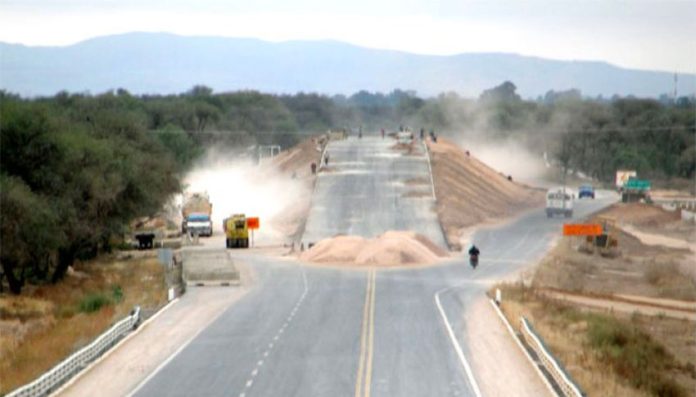The public-private plan to build 68 infrastructure projects with an investment of almost 526 billion pesos (US $26.4 billion) will have a limited impact on the Mexican economy, according to analysts who spoke to the newspaper Reforma.
The federal government and the private sector presented details on Monday of 29 of the projects worth a combined 228 billion pesos. Details of 39 of them were presented in early October while 10 are already underway.
The infrastructure plan includes highway, energy and public transit projects.
Alejandro Saldaña, chief economist at the financial company Ve por Más, noted that the investment associated with the projects is only equivalent to 2.3% of GDP and therefore will not have a large impact.
“We need to remember that the investment in these projects is spread out over the course of their development, which will take years,” he added.
Saldaña said that there will be some economic benefits from the investment but they will be seen in the medium rather than short term.
“We see this [plan] as insufficient for investment to return to the levels there were before [2018] – more than 20% of GDP,” he said.
Saldaña also said that the resources the private sector will invest are not yet set in stone and that it is not certain that the government has the funds needed for the projects in which it will have majority participation.
Roberto Ballinez, senior infrastructure director at HR Ratings, said that public resources earmarked for the projects could be reallocated if the coronavirus pandemic worsens.
“The issue of the health emergency and the purchase of vaccines is extremely important,” he said. “… If there is a significant increase in infections, … it could have indirect effects for these projects.”
Ballinez said it was positive that the government and private sector are working together but noted that the number of projects announced is well short of the 1,600 potential projects identified by members of the latter last year.
In a best case scenario the economic benefits of the projects won’t be seen until the second half of 2021, he said.
Saldaña said the government should be trying to attract more investment to sectors such as renewable energy and oil, which in fact have been made more difficult to enter due to policy decisions taken by an administration led by a staunch nationalist president and fierce critic of the 2014 reform that ended the state energy monopoly.
“Economically speaking, we believe that there are not many arguments not to be more aggressive and take advantage of the potential the country has to attract investment in these sectors. This would also help to generate more confidence in the economic policy,” he said.
Ricardo Trejo, director general of business information company Forecastim, predicted that private investment in the energy sector will be minimal because the government is seeking a more dominant role for state-owned companies such as Pemex and the Federal Electricity Commission.
“There are no signs at the moment that it will allow more private sector investment to arrive in this area. The production and exploration of hydrocarbons will continue to be Pemex or government [activities] and there will only be opportunity for investment in liquefaction or logistics.”
Source: Reforma (sp)
